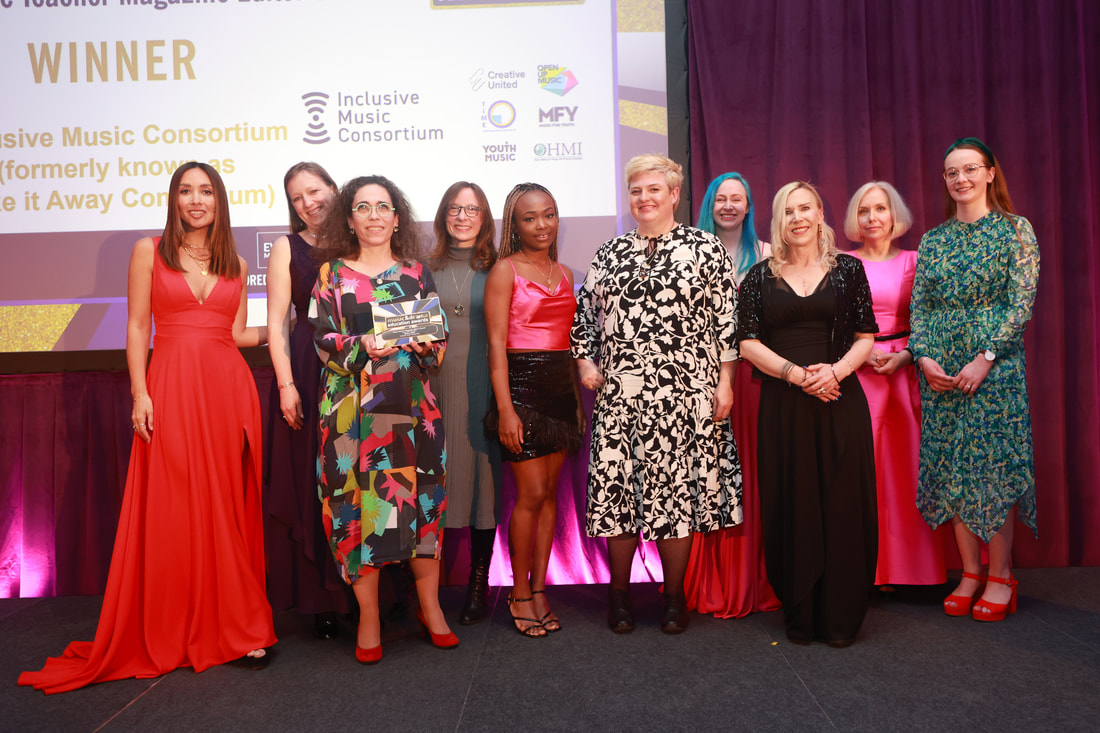|
The Inclusive Music Consortium has been recognised for its work in inclusive music-making by this year’s Music and Drama Education Awards. The announcement was made by Myleene Klass of headline sponsor Classic FM, at the recent Awards ceremony at the London Marriott Hotel, Grosvenor Square.
The consortium – which includes the six founder members of Creative United, Music for Youth, Open Up Music, Technology in Music Education (TiME) and Youth Music, and the OHMI Trust – won in the Music Teacher Magazine Editor’s Award category. Editor Harriet Clifford nominated the consortium as her choice after having been introduced to its work when she interviewed Creative United CEO Mary-Alice Stack. Of particular interest was its efforts to support the 31,459 children with a physical disability as their primary need who attend a mainstream school in England (2019 figure, according to Department for Education (DfE) statistics). Joining forces has long been considered the best way to galvanise the individual efforts of each organisation – whether that be improving participation by under-represented groups including those with a disability, gathering musicians for large-scale performances, work in mainstream and special schools, or supporting the manufacture of adapted musical instruments and enabling equipment. Rachel Wolffsohn, Manager of the OHMI Trust reflects on the work of the Inclusive Music Consortium, “The consortium is a real testament to how the whole is greater than the sum of parts. As one example, Creative United were previously working on removing financial barriers to music learning and participation. At the same time, the OHMI Trust were working on removing participation barriers by commissioning the design and creation of adapted musical instruments and enabling equipment. “Neither of these issues can be dealt with in isolation so coming together in this way – and with the other partners in the consortium – means we can better support at every step of a musician’s journey – from understanding their needs and the instrument they would like to play, to sourcing and financing the appropriate instrument and equipment, matching them with a teacher, and encouraging their participation in wider performances.” Receiving such national acclaim presents an opportunity for the consortium to reach an even greater audience of musicians and practitioners who are seeking to make music-making truly inclusive for all. Comments are closed.
|
CategoriesArchives
June 2024
|


 RSS Feed
RSS Feed
